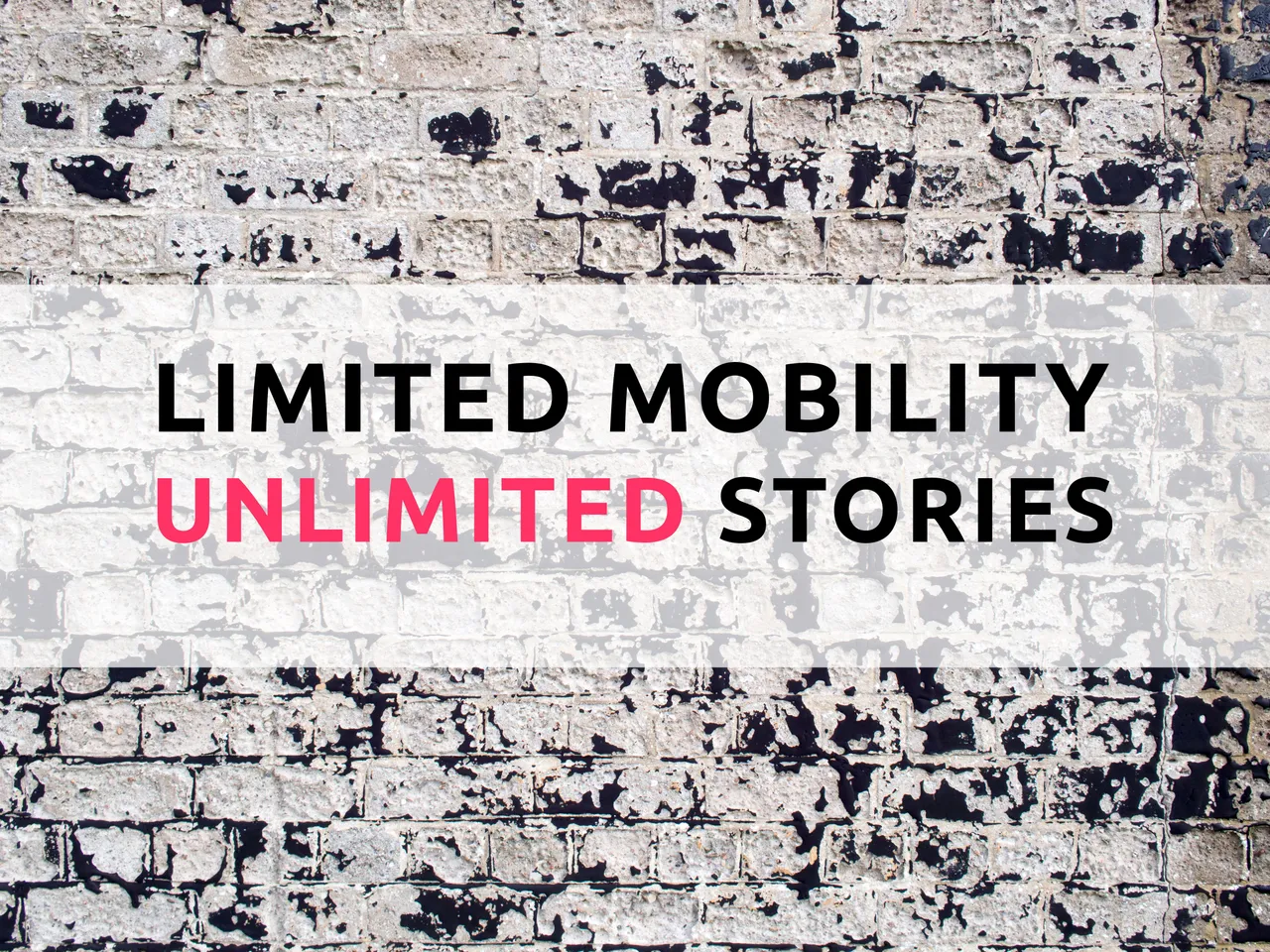Becoming a person of limited mobility meant I added some words to my vocabulary. Words I hadn't heard of before but discovered because I researched different topics or followed a new person on Twitter. One of the words that suddenly relates to me and didn't exist in my vocabulary until I became a person of limited mobility: Spoonie.

What is a Spoonie?
The original Spoon Theory was written by Christine Miserande on 'butyoudontlooksick.com' and has since been used by people with limited mobility and/or chronic illness to explain how these physical challenges limit the energy one has on a given day.
From her original story, where she describes a moment in a restaurant where her best friend asks her what it really means to be sick, more than just the pains and the walking with a cane:
At that moment, the spoon theory was born. I quickly grabbed every spoon on the table; hell I grabbed spoons off of the other tables. I looked at her in the eyes and said “Here you go, you have Lupus”. She looked at me slightly confused, as anyone would when they are being handed a bouquet of spoons. The cold metal spoons clanked in my hands, as I grouped them together and shoved them into her hands.
I explained that the difference in being sick and being healthy is having to make choices or to consciously think about things when the rest of the world doesn’t have to. The healthy have the luxury of a life without choices, a gift most people take for granted.
On Wikipedia a summary of the spoon theory is described as:
The spoon theory is a disability metaphor and neologism used to explain the reduced amount of energy available for activities of daily living and productive tasks that may result from disability or chronic illness. "Spoons" are a visual representation used as a unit of measure in order to quantify how much energy a person has throughout a given day. Each activity requires a given number of spoons, which will only be replaced as the person "recharges" through rest. A person who runs out of spoons has no choice but to rest until their spoons are replenished.
The original author explains to her good friend how having a limited amount of spoons means you have to think about every action you take because without spoons it literally is 'done' for that day. Now of course we all have limited resources, but there's a difference between feeling low in energy and being tired but being able to 'push through anyway', and literally not being able to get home, take a shower, or cook your meal because you've already spent your last spoon.
What is my level of Spoonieness?
For a long time I've struggled accepting I'm a Spoonie, too. The first thing you do when you get a physical constraint is find ways in which you can avoid the negative limitations it puts on you. So you find alternative ways to get your groceries, you finally start taking driver's lessons, you skip social events, accept other events will take a week to recover from, you go on road trips by car instead of taking long hikes.
But the fact of the matter is: you simply can't do a lot of things anymore the way you used to. But you forget. You accept. You adapt. But in the end it's true: you are a Spoonie. I have given away some spoons too soon which meant being literally unable to climb the stairs in order to get to bed.
How much CAN a Spoonie do?
I had a discussion with someone whose wife got a 'disabled parking permit'. He asked why I didn't have such a permit. "Because they need me to prove I can't walk more than 200 meters". And I can, I said. I can walk 200 meters. So I don't need / don't have a claim on that permit.
He then explained: "My wife can walk 200 meters too. But, let's say, she wants to get groceries. If she parks on any spot, she will already have walked more than 200 meters before arriving in the supermarket. Then she walks through the isles of that supermarket. She will have to stand in line to pay for her groceries. Walk back those 200 meters to her car now with kilos of weight in her hands too. She'll get home, have to park somewhere in the street, and walk more meters to our house. In reality she does all this while taking breaks in between and sit on a bench a few times. Afterwards she is tired for hours. CAN she actually walk those 200 meters or is it an illusion?"
It hit me: I just simply avoid all those things that I know are too heavy physically. I have created a support system and use a lot of online shopping and home deliveries to 'get my things done'. And although no-one really loves going to a supermarket, is it healthy I just partially removed myself from such a simple task completely and just simply accepted I can't do them anymore?
Too good at saving up on Spoons
The answer probably lies somewhere in between.
I don't have to do all the things I did before I permanently damaged my foot. I should be able to have the choice to do them and get all the aids I can get my hands on in order to have more options. But I can still choose to make my life easier by doing less of the things that hurt me and save on some spoons so I can do stuff that actually fill me with happiness and gives me back positive energy.